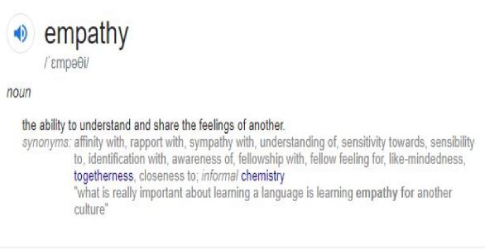3 Brilliant Reasons Why Software Developers Should Practice Empathy?
Empathy is a known virtue in personal relationships and social circles. We have no misgivings when someone asks us to be empathetic in a relationship. Because empathy is a key ingredient in Emotional Intelligence and is the oil that keeps relationships running fruitfully. It helps us experience what others are experiencing.

But should empathy be confined to our personal and social realms alone? It is true that most of us feel awkward when the term is introduced in a business environment. We often consider it as a weak emotional sensation rather than a right brain activity. But it is no longer an unexpected leadership quality in a corporate setting.
There are plenty of studies that prove that empathy is an essential leadership and business skill. According to Microsoft CEO Satya Nadella, empathy is, among other things, a key source of business innovation and one of the top qualities that a CEO should possess.
Now, What about Software Developers and Empathy!
Now, if I say software developers need to learn ‘Empathy’, would you be awestruck as long as it’s not a hot programming language? Will you be surprised to know that empathy can be the secret ingredient to make your software a thumping success?
Let me start with an apt quote in this regard. In the words of Kent Beck, the American software engineer and the creator of extreme programming, “The craft of programming begins with empathy, not formatting or languages or tools or algorithms or data | structures.”
Empathy is an essential feeling that every software developer has to have if you agree on the following facts:
• Software developers are creating tools for making other people’s lives better
• Programming is always about humans helping other humans by creating the most comforting experience for each other.
Here’s a quick look at how empathy helps a software developer in his/her trade.
1. Empathy helps you understand the requirements precisely
Software developers can fully understand the essence of the requirement only if they understand the audience who will interact with the software. This understanding comes from talking to a choice of actual and potential users. You need to have empathy if you want to establish an emotional connection with the needs of the end-users.
Empathetically understanding the need of the project helps you build a product that precisely solves a problem. So, club your logical and pragmatic approach with empathy while doing requirement gathering irrespective of the methodologies (Agile or waterfall) you follow for development.

2. Empathy helps you to code well
Software development as a team effort requires you to understand the feelings/reactions of your fellow developers. As human interactions are what your software is going to deal with, it is important to have an empathetic understanding with your teammates as well. Empathy helps you to relate well to the thoughts and emotions of your colleagues.
Empathetic developers will try to lessen the errors before passing it to the QA as they take the responsibility of basic level bug checking rather than passing chaos. Besides, while writing code they will be considerate about other developers who are going to deal with it. So, we can say that high-quality/maintainable code with proper documentation is a by-product of being empathetic.
3. Empathy helps you while leading your team
Understanding your co-workers helps you have a clear idea of the challenges ahead, and you can evolve the most fitting solution for that. If you are the team leader it helps you to identify the root cause of failures and support your team effectively. By nurturing empathy and compassion in your team you can trigger creativity and better collaboration leading to better coding/programming.

Empathetic Programmer. Is That You?
Some folks are naturally blessed with an empathetic attitude. Demonstrating empathy doesn’t come naturally to all. But the good news is that empathy is a skill that can be learned through deliberate attempts. Solving a technical problem is a breezy affair for most of the developers, but by practicing empathy, you can create a magical effect in your team and in your work. Empathy helps you to have the user as the focus and UX as the initial concern.
Conclusion
As software developers are building software with other people and for other people, they need to understand end-users’ (and/or client’s) experience and fellow developers’ thinking. For this, they need to be in the ‘proverbial shoes’ to feel from the other person’s perspective. In a nutshell, empathy is the secret weapon that helps them achieve this.


